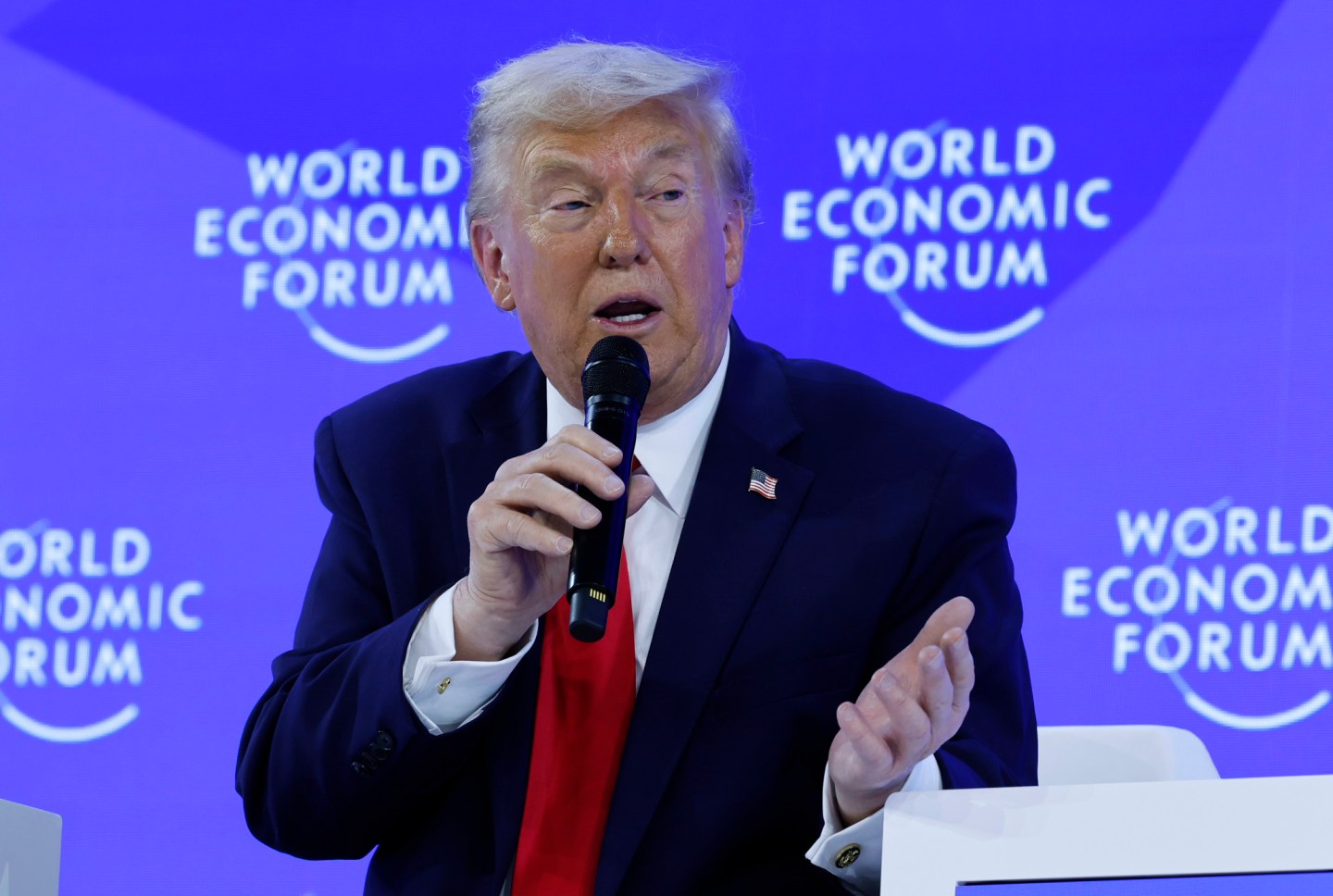5 Qs WITH A DEALMAKER
Good morning, Term Sheet readers.
Anu Duggal founded Female Founders Fund (F3) back in 2014 when the venture landscape looked much different. She was an entrepreneur-turned-investor who had just sold her company and was thinking about her next move.
“When I looked around, I saw a lot of women who were starting businesses,” she told Term Sheet. “I recognized that in the next 10 to 15 years, you’d start to see more and more interesting companies being built by women.”
So she began fundraising for F3, a seed stage venture fund that invests exclusively in female-founded technology companies. Seven hundred investor meetings later, Duggal managed to raise $5 million for her first fund. “Starting a fund is really difficult,” she said. “We have over 70 investors in our first fund — all individuals. The majority of those investors were people who had invested in my last company.”
But things are a little different in 2018. Just two weeks ago, Duggal and F3 partner Sutian Dong announced they closed $27 million for their second early-stage fund. Though it’s a star-studded list of individual investors — Melinda Gates, Hayley Barna, Katrina Lake — the partners were able to bring on some new limited partners. Unlike the first fund, this one includes some capital from institutions, fund of funds, foundations, and family offices, Duggal said.
F3’s portfolio includes companies like Thrive Global, Zola, Maven, and WayUp.
In a conversation with Term Sheet, Duggal and Dong discuss the role LPs play in the venture ecosystem, investment trends to watch, and whether a fund like F3 is really in a position to challenge the status quo. Read the full Q&A here.
TERM SHEET: You raised the first fund in 2014. How have your conversations with potential LPs changed since then?
DUGGAL: When you think about the last 15 to 20 years of exits in the venture capital industry, there have not been that many that were led by female founders. What’s happened between Fund I and Fund II is that you’ve seen companies like StitchFix go public, you’ve seen Rent the Runway scale. There are now solid examples of companies that are being led by women that are fairly diverse and not in just one industry. LPs can understand that’s actually happening now. In the first fund, we were asking LPs to bet on the future — now we have some concrete examples to point to.
You’re investors in wedding registry startup Zola, which just raised $100 million from Goldman Sachs, Comcast Ventures, and NBC Universal. What did you see in the company early on that made you think it was a big opportunity?
DUGGAL: I actually met [Zola CEO] Shan-Lyn Ma pre-Zola. I was really impressed with her. When you think about weddings as an industry, it’s definitely not at the top of the list from a venture capital investment standpoint. I think though there’s a ton of spend that happens in the category but no one has really innovated. A lot of that spend happens in the wedding process — in registries. Even in the early days, it was pretty clear that if you could get that model to work, the viral model of having 100 or 200 people to buy wedding gifts, would ultimately translate into a pretty interesting network effect. We had been tracking Zola early on, and the numbers year after year were incredibly impressive.
DONG: It underlies our conviction as a fund we have a very different point of view from other folks in the industry. What I heard around the industry from investors talking about Zola, it would be around, “Is this ever going to be a big business?” A lot of people looked at Zola and took the view of, “Most people get married once, so what’s the lifetime customer value?”
People get married every year, and the current experience across the wedding industry is still pretty old school. The only thing that has really come online is that registry piece. We looked at Zola and we saw they were creating a platform in a space where many, many people go through in their lifetime maybe not just once but twice. And it was using modern technology designed for millennial consumers who are used to really natural, intuitive experiences online.
What are some investment trends you think Term Sheet readers should be paying attention to right now?
DUGGAL: There’s interesting opportunities in women’s health — whether it’s fertility or benefits that relate to women in the workplace. We’re seeing a lot in this area. We were early investors in Maven [a digital clinic for women]. Through that experience, we’ve gotten to understand that women really control the spend in healthcare, and they haven’t really been marketed to or addressed as consumers.
The second area we’re interested in is around experiential commerce. You obviously had some really exciting brands built online, but at the end of the day what we’re seeing that a lot of traditional retailers are trying to re-invent. That’s an area where we’re seeing a lot of interesting businesses and startups think about how to best use that physical space and translate it into something that’s more than just your typical retail experience.
DONG: Another trend is the rise of “alternate communities.” We have this view that the decline of organized religion, amongst other things, is leading to a gap in the market where the functions that the church once served, like community and connection, have created an opportunity for more secular brands to pop up. SoulCycle is a great example of that — people have characterized it as almost cult-ish. We’re seeing more and more companies pop up to re-create some of the needs for the individual, whether it’s community or a search for meaning. We’re investors in a group called Peanut, which is a social network for moms. We’re investors in a company called HipSobriety, which is an alternative to Alcoholics Anonymous. We’re investors in a company called Co-Star, which is an astrology app.
There’s been this massive shift in terms of consumer intent to gather in places with other like-minded individuals. We’re looking at a lot of these communities that are being built online in really interesting ways.
Only 2% of venture funding went to female founders in 2017, and just 8% of partners at the top venture capital firms are women. How big of a role do limited partners play in shaping what the tech ecosystem looks like?
DUGGAL: I think LPs play a pivotal role in terms of helping establish the next generation of fund managers. There’s two ways to think about venture capital. You obviously have the established, big names in the industry, but I think what you’ve seen in the last four years is the emergence of micro-funds and even more traditional VCs leave to start their own shops. So I think that as limited partners, there’s a really great opportunity to back these fund managers who don’t necessarily look like the traditional venture fund investors and show that you can still get great returns.
Right, but the funds you’re referring to are relatively small when compared to the more traditional firms on Sand Hill Road. Are they truly in a position to challenge the established players?
DUGGAL: Ultimately, what we’ve seen that’s been incredibly interesting and exciting as a seed fund is that from a diversity standpoint, you won’t see more companies being built by women unless they get seed funding. The reason that funds like ours are important is that you need people who can open up the door to get that Series A or Series B. You need to ultimately have these larger funds feel like they’re missing out and that there’s a serious economic repercussion by not taking a look at the companies we’re helping get off the ground.
The impact will come later. We feel like with the portfolio we have now, we are able to make introductions to Series A and B funds. As those companies get funded, other VCs will recognize that these are some really interesting opportunities and founders are building businesses that have real potential to scale. Ultimately, that’s what will move the needle on more women getting funded and more exits happening.
DONG: It will take time. Part of the reason I think there are so many seed funds getting started is that it can be easier to raise $20 million than it is to raise $200 million. For many people, it is the starting point to build into a larger franchise of funds and scale into being a Series A or B over time. I think you’ll see the maturation of some of these franchises that will be more established players in 10 years. I will point to First Round Capital as a fantastic example of a firm that has been around for a little over 10 years, but Josh [Kopelman] and his team have done an incredible job at creating and re-defining what seed looks like.
Secondly, you’re seeing in the last several days that many of these more traditional firms are adding senior level female partners. It’s a real indication to us that the firms are aware that the lack of diversity within their organizations is leading them to miss out on some opportunities that they really should be in front of.
----
Corrections: An entry in yesterday’s Term Sheet omitted the seller of a company. Permira sold Magento Commerce to Adobe for $1.68 billion. Another entry incorrectly listed the sales figure of Electrocore. The company generated $811,500 in 2017, not 811.5 million. We regret the errors.
THE LATEST FROM FORTUNE...
• Comcast Is Preparing an All-Cash Bid to Break Up the Disney-Fox Marriage
• Trump Paused His Trade War With China. But Countries Are Still Preparing $3.5 Billion in Tariffs to Hit the U.S.
• GM Gets Ready for a Post-Car Future (by Rick Tetzeli)
• Ticketfly Co-founder and Monero Ringmaster Start New Blockchain Project (by Robert Hackett)
...AND ELSEWHERE
Comcast is in the advanced stages of preparing all-cash bid for Fox assets. Barclays explores mergers with rival banks. Deutsche Bank considers plans for 10,000 job cuts.
VENTURE DEALS
• Roadstar.ai, a China and California-based autonomous driving startup, raised $128 million in Series A funding. Wu Capital and Shenzhen Capital Group led the round, and was joined by investors including Yunqi Partners.
• Iora Health, a Boston-based primary care provider with a focus on Medicare patients over 65 years of age, raised $100 million in Series E funding. Investors include .406 Ventures, Devonshire Investors, F-Prime Capital, Flare Capital Partners, GE Ventures, Humana, Khosla Ventures, Polaris Partners and Temasek.
• SafetyCulture, an Australia-based provider of software for mobile workplace safety and quality management, raised A$60 million ($45.2 million) in funding. Tiger Global Management led the round.
• SignalFx, a San Mateo, California-based provider of real-time operational intelligence for data-driven DevOps, raised $45 million in Series D funding. General Catalyst led the round, and was joined by investors including Andreessen Horowitz and CRV.
• OWKIN, an A.I. startup using machine learning to augment medical and biology research, announced a a Series A extension from GV. This brings the company's total funding to $18 million to date.
• Superpedestrian, a Cambridge, Mass.-based developer of e-bikes, raised $16.5 million in Series B1 funding. Investors include Extol Capital LLC, Spark Capital, and General Catalyst.
• Ultromics, a U.K.-based developer of echocardiography software, raised about $13.4 million in Series A funding. Oxford Sciences Innovation led the round, and was joined by investors including Neptune, RT Ventures, GT Healthcare, Tanarra and Fushia.
• Okera, a San Francisco-based software provider, raised $12 million in Series A funding. Bessemer Venture Partners led the round, and was joined by investors including Felicis Ventures and Capital One Growth Ventures.
• Real Vision, a video-on-demand service for financial and business media, raised $10 million in funding. The investors were not named.
• Tear Film Innovations Inc, a Carlsbad, Calif.-based maker of the iLux evaporative dry eye system, raised $8.5 million in funding. Visionary Ventures and Bluestem Capital led the round.
• RenovoRx, Inc., a Los Altos, Calif.-based medical technology company developing a catheter-based approach to treating pancreatic cancer, raised $10 million in funding. Boston Scientific led the round, and was joined by investors including btov Partners, Astia Angels, the Angels' Forum, the Halo Fund III, L.P., Golden Seeds, and Acorn Campus Taiwan.
• LockState, a Denver-based smart lock platform, raised $5.8 million in Series A funding. Iron Gate Capital led the round,and was joined by investors including Kozo Keikaku Engineering Inc, Nelnet and Service Provider Capital.
• Tempow, a Paris-based developer of a Bluetooth protocol, raised $4 million in Series A funding. Balderton Capital led the round, and was joined by investors including C4 Ventures.
• Mented Cosmetics, a New York-based cosmetics company, raised $3 million in seed funding. CircleUp Growth Partners led the round.
• Lending Express, a New York City-based AI-powered marketplace for business loans, raised $2.7 million in funding. Investors include Entrée Capital and iAngels.
• EKIM, a France-based food tech startup, has raised 2.2 million euros ($2.6 million) in funding. The investors were Partech and Daphni.
• Pensa Systems, an Austin, Texas-based provider of autonomous perception systems, raised $2.2 million in seed funding. ATX Seed Ventures led the round, and was joined by investors including ZX Ventures.
• Parabola, a San Francisco-based company that helps automate manual work, raised $2.2 million in funding. Matrix Partners led the round, and was joined by investors including included AngelPad, Merus Capital and Abstract Ventures.
• Optimoz, a Bethesda, Md.-based digital transformation company, raised $2 million in Series A funding. Global Environment Fund led the round.
• Insightin Health, a Gaithersburg, Md.-based provider of an AI-driven decision platform that helps health insurance companies with preventative actions for their members, raised $2 million in funding. Health Catalyst Capital Management led the round, and was joined by investors including Revolution’s Rise of the Rest Seed Fund, TEDCO, SaaS Ventures and TCP Ventures.
HEALTH AND LIFE SCIENCES DEALS
• GRAIL Inc, a Menlo Park, Calif.-based healthcare company focused on detecting cancer early, raised $300 million in Series C funding. Ally Bridge Group led the round.
• Orbit Discovery Ltd, a U.K.-based biotech company developing a peptide identification and optimisation platform, raised £6.9 million ($9.2 million) in Series A funding. Oxford Sciences Innovation led the round, and was joined by investors including RT Ventures, Borealis Ventures, Perivoli Innovations, and Oxford University.
• Canopy Biosciences, a St. Louis, Mo.-based research tools company focusing on gene editing and expression analysis, raised $2.4 million in Series A funding. BioGenerator, the investment arm of BioSTL, and Kingdom Capital led the round.
PRIVATE EQUITY DEALS
• Permira agreed to invest $350 million in WeddingWire, a Chevy Chase, Md.-based online marketplace connecting engaged couples with wedding professionals. As part of the deal, current backer Spectrum Equity will maintain a “significant” minority ownership in the company.
• The Riverside Company made an investment in GermanPersonnel, a Munich-based e-recruiting technology company. Financial terms weren't disclosed.
• L Catterton made an investment of an undisclosed amount in Vitamin Packs, a Snoqualmie, Wash.-based vitamin subscription service. Existing backer BrandProject also invested in this round.
• Marlin Equity Partners completed the acquisitions and merger of Virgin Pulse and RedBrick Health, two providers of employee wellbeing solutions. Financial terms weren't disclosed.
• SFW Capital Partners made an investment of an undisclosed amount in Swiftpage, Inc, a provider of digital marketing and CRM solutions.
OTHER DEALS
• Advanced Energy Industries, Inc. (NASDAQ: AEIS) acquired the electrostatic business of Monroe Electronics, a New York-based electrostatic detection and measurement instrumentation company.
IPOs
• Foxconn, the iPhone parts maker, plans to raise 27.1 billion yuan ($4.3 billion) in an IPO pricing 1.97 billion shares at 13.77 yuan ($2.20). The company would be valued at about $43 billion. The company plans to list on the Shanghai Stock Exchange. Read more.
• Evo Payments, an Atlanta-based payments firm, raised $224 million in an IPO of 14 million shares priced at $16, the high end of its $14 to $16 range. The firm posted revenue of $504.8 million. BlueApple and Madison Dearborn Partners back the firm. J.P. Morgan, BofA, Citigroup, Deutsche Bank, and SunTrust Robinson Humphrey are among the underwriters. Read more.
• Verrica Pharmaceuticals, a West Chester, Penn.-based clinical stage dermatology firm focused on molluscum contagiosum, says it plans to raise $86.3 million in an IPO. It has yet to post a revenue. PBM Capital(58.4% pre-offering), Perceptive Life Sciences (12.1%), and OrbiMed (6.4%) back the firm. BofA, Jefferies, and Cowen are underwriters in the deal. The firm plans to list on the Nasdaq as “VRCA.” Read more.
EXITS
• IHS Markit will buy Ipreo, a New York-based data provider, for $1.86 billion from Blackstone and Goldman Sachs. Read more.
FIRMS + FUNDS
• Macquarie Infrastructure Partners, an investment firm, raised more than $3.84 billion for its fourth fund, according to an SEC filing.
• Innovation Endeavors, a Palo Alto, Calif.-based venture capital firm, raised $333.5 million for its third fund, according to an SEC filing.
• Team 8, an Israel-based venture capital firm, has set out to raise an $85 million second cybersecurity-focused venture-capital fund, according to an SEC filing.
PEOPLE
• Trive Capital promoted Blake Bonner to partner.
SHARE TODAY'S TERM SHEET
View this email in your browser.
Polina Marinova produces Term Sheet, and Lucinda Shen compiles the IPO news. Send deal announcements to Polina here and IPO news to Lucinda here.











